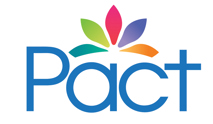23/10/2024
CEO blog
New research recommends more support for prisoners' children and families
A new study involving nearly 300 fathers in prison published this week by Public Health Wales and Bangor University sheds light on how ‘Adverse Childhood Experiences’ (ACEs) are passed down through the generations.
The research found that:
- One of three of the fathers in prison lived with someone who had been to prison when they were children themselves
- Almost half had four or more Adverse Childhood Experiences, and
- Their children were twice as likely to be exposed to domestic violence and over seven times more likely to live in a household where mental illness was present.
This important new research clearly makes the case for interventions that recognise the impact of this childhood trauma and seek to break the cycle of harm that is passed from one generation to the next.
The authors of the study have recommended that supporting people in prison who have suffered ACEs should be a key consideration for prisons, as a means to reduce the inter-generational harms to children. They also recommend that families of prisoners should be offered parenting support.
Andy Keen-Downs, CEO of Pact said: "We must be careful not to stigmatise children. With the right support, children with a parent in prison will go on to lead happy and fulfilling lives.
"However, this research confirms yet again what we know - that for far too many kids, if you have a parent in prison, you are more likely to face all sorts of difficulties in childhood, and as a consequence, get caught up in the criminal justice system.
"If we are serious about addressing the crisis in our justice system, and tackling the endless expansion of our prison population, we have to think inter-generationally. We have to think family."
Pact has warmly welcomed Labour’s manifesto pledge to create a system to identify and support children with a parent in prison. The Government estimates that around 200,000 children a year are affected by this issue.
The conclusions of this research point to the public benefit of prison-based programmes on parenting and good relationships. These help people in prison to recognise and deal with their ACEs and prevent them being passed from one generation to the next. However, programmes developed and delivered by Pact and other charities over many years have been much reduced due to prison overcrowding and cuts to the MoJ budget.
Andy Keen-Downs said: "For over a decade, we have been calling for action for prisoners’ children and for parenting education in prisons. The fact that there is still no statutory safety net in place to support children with a parent in prison is shameful. Pact are now working with the Government and partners to address this. We need all Government Departments to share responsibility.
"Helping prisoners to deal with their challenging childhoods, and to learn how to become dependable parents, doesn’t just benefit them and their children, it supports efforts to cut crime, reduce victims, and break the vicious cycle of intergenerational offending."
Supporting children with loved ones in prison
Last year, Pact supported 97,000 prison visits across England and Wales for children and young people. In addition to supporting children to stay in touch with their parents in prison, making visits child-friendly and supporting families on their journey, we also:
- deliver training and resources for schools, including a free schools toolkit, to help tackle the stigma of parental imprisonment and encourage children and young people to access support.
- provide trauma-informed training for police officers that has been co-created with children and young people affected by arrests and home raids.
- provide print and online resources for children and young people to help them process events and emotions surrounding their loved one's imprisonment.
Read more about how we support children and young people with parents in prison: https://www.prisonadvice.org.uk/children-affected-by-imprisonment/
Access support and advice
If you are currently supporting a child or young person affected by imprisonment, you can contact the Prisoners' Families Helpline on 0808 808 2003 for free, confidential support and advice.
You can also access a range of online resources here: Children & Young People

